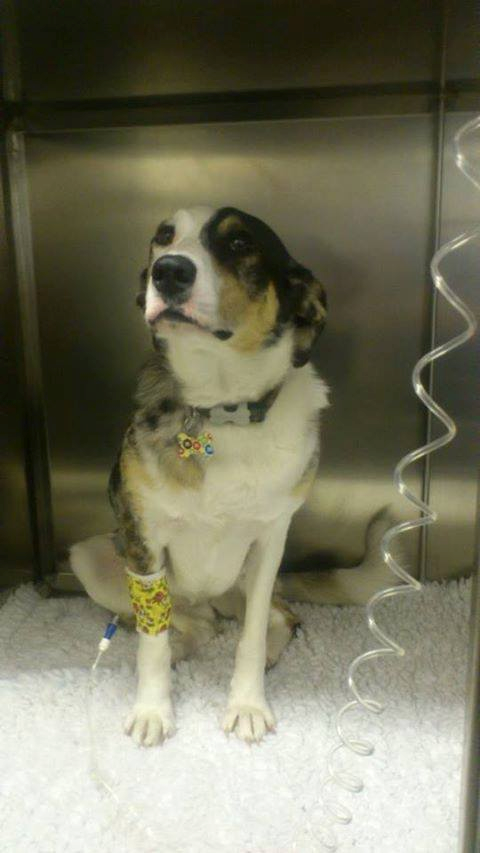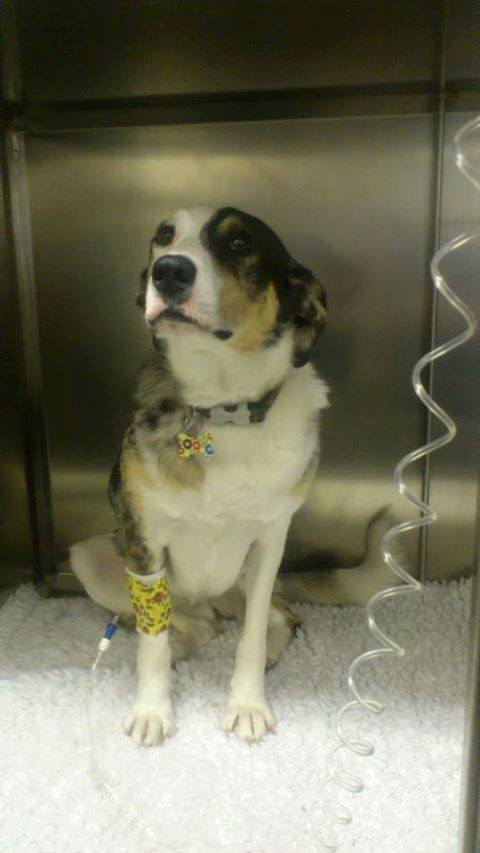 We have recently seen three suspected cases of Seasonal Canine Illness (SCI) one of which was our own vet Alexa’s poor Dot. In each case the dog was suddenly very unwell, with severe vomiting, abdominal pain, lethargy, and reluctance to eat. Fortunately all cases survived, and recovered within a couple of days. However, other vets in other areas have reported cases of SCI being fatal. Norfolk and Nottinghamshire seem to be the worst affected areas.
We have recently seen three suspected cases of Seasonal Canine Illness (SCI) one of which was our own vet Alexa’s poor Dot. In each case the dog was suddenly very unwell, with severe vomiting, abdominal pain, lethargy, and reluctance to eat. Fortunately all cases survived, and recovered within a couple of days. However, other vets in other areas have reported cases of SCI being fatal. Norfolk and Nottinghamshire seem to be the worst affected areas.
It is now believed that harvest mite bites may be the cause, but further research is being undertaken by the Animal Health Trust (AHT), and hopefully this will provide a conclusive answer.
Harvest mites have been always been around, and until recently were not thought to cause any harm, other than a bit of irritation and itchiness due to the bites. They are easily killed with a fipronil spray.
We found harvest mites on two out of the three of our suspected cases, and all the dogs had been walked in areas of woodlands or parklands.
The AHT are advising spraying dog’s feet, legs and bellies with fipronil spray before walking in such areas. However, there is no evidence yet to suggest this will prevent SCI as the link with harvest mite is not yet proven.
Symptoms of SCI are as described above, with some dogs also having diarrhoea. Cases are usually seen from August to November, and are typically in dogs which have been walked in woodlands or grassy areas 24 to 72 hours prior to developing symptoms. The dogs may or may not have harvest mites on them; these are usually found between their toes or on their bellies, and look like orange powder. On closer examination, they can be seen to be tiny orange mites on the surface of the skin. They do not burrow under the skin, but they do bite. The bites are seen as small red dots and the skin around is often inflamed.
If you suspect your dog is showing signs of SCI then contact your vet immediately as they will need fluid therapy. At present we have no cure for SCI and can only provide supportive nursing care, including general fluid therapy. It’s important to act quickly. If you see mites on your dog then a spray treatment is advised, even if they are not showing any signs of illness.
More information can be found on the AHT website www.aht.org.uk
– Sarah Probert, BVSc MRCVS, Bridgnorth Veterinary Centre






